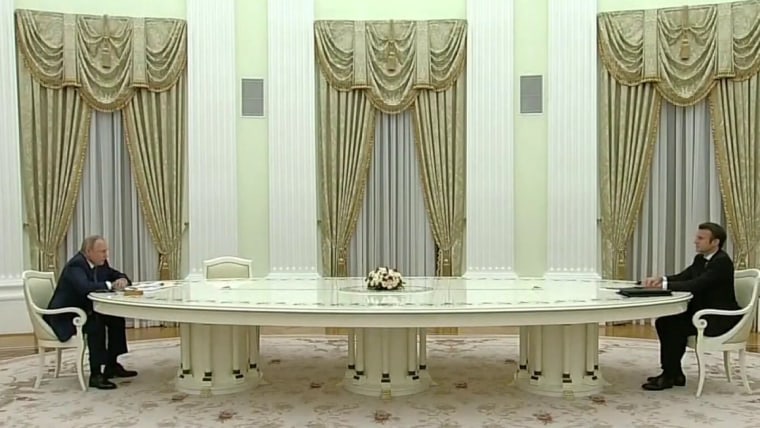Navigating Ukraine, Biden offers frank assessments of unfamiliar allies in
WASHINGTON — President Joe Biden has for months grappled with differences within the Western alliance while navigating one of the trickiest foreign policy challenges to emerge since he took office: Russia’s threat to invade Ukraine.
While administration officials and outside experts say the U.S. and its allies are more closely aligned now than even just weeks ago, Biden has riffed during private meetings about some of his counterparts involved in this crisis, according to people who have heard him use the descriptions in closed-door sessions.
German Chancellor Olaf Scholz is no Angela Merkel, Biden has said, according to the sources. He’s described British Prime Minister Boris Johnson’s demeanor as blustery, they said. And French President Emmanuel Macron, Biden has said, wants to be Charles de Gaulle, the sources said.
As for Russian President Vladimir Putin, Biden has described him as “a guy with nukes and no friends,” according to people who’ve heard him use the description.
The president’s private descriptions of some of his counterparts offer a window into his thinking about some of the headwinds he’s faced while trying to corral a punishing international response to Russia’s aggression toward Ukraine. Part of his observation, as he’s colorfully underscored, is that as he looks around Europe, he’s found few familiar faces, according to the people who’ve heard his comments.
It’s an uncommon position for Biden, who’s been a leading figure in American foreign policy for nearly half a century and often leans on relationships in hashing out diplomacy. Indeed, the only world leader at the center of the Ukraine crisis with whom Biden has a history is Putin.
Biden’s efforts to coordinate a united response to Russia have been complicated by divisions among NATO countries over how they perceive the threat posed by Moscow. Germany, for instance, has resisted appeals by Ukraine and other European countries to halt the Nord Stream 2 pipeline, which will deliver natural gas from Russia. On Monday, after meeting with Biden at the White House, Scholz again declined to make that public promise.
France has pushed for the European Union, which the U.K. is no longer a part of, rather than NATO as the lead forum for negotiations with Russia. Eastern European governments, meanwhile, have argued for a tougher line on Russia and more weapons for Ukraine.
Those and other crosscurrents weren’t as pronounced even eight years ago when Russia invaded Ukraine, experts say.
“Some of the dynamics have changed” since the 2014 Russia invasion of Ukraine, said Donald Jensen, director for Russia and Europe at the U.S. Institute of Peace, a federally funded body that works to reduce global conflicts.
Jensen predicted that if Russia again invades Ukraine, most alliance members will come together with a coordinated response: “At the end of the day, they’ll all be on board.”
Asked about Biden’s comments about Macron, Scholz, Johnson and Putin, National Security Council spokesperson Emily Horne said in a statement: “This anonymous gossip doesn’t resemble in any way what the president says or thinks about his counterparts, whom…
Read More: Navigating Ukraine, Biden offers frank assessments of unfamiliar allies in

